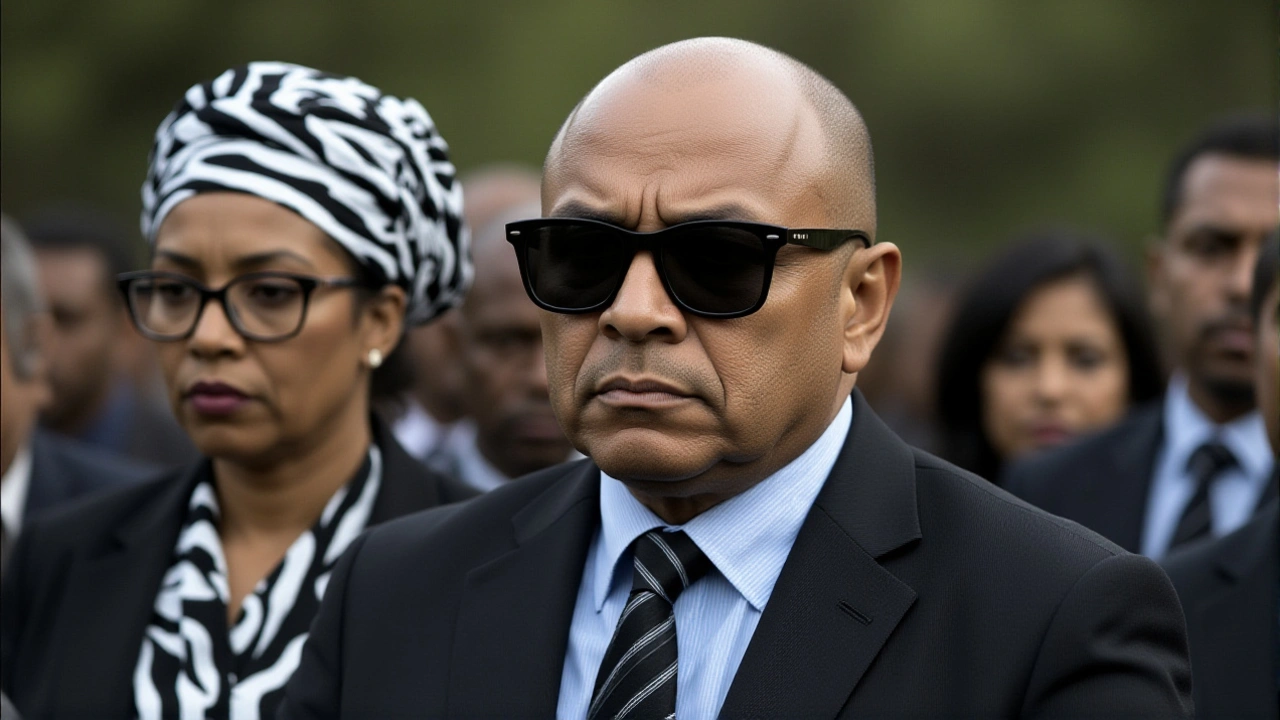When Senzo Mchunu, Minister of Police of South African Police Service, walked into the Good Hope Chambers on 16 October 2025, the nation held its breath. The National Assembly’s ad‑hoc committee, formed on 23 July 2025 to probe alleged political meddling in the SAPS, gave the minister a rare chance to tell his side. Soviet Lekganyane, chair of the multi‑party panel, opened the session at 11:00 local time in Cape Town’s historic Parliament building.
Background to the Ad‑Hoc Committee
The committee emerged from a joint report by the Portfolio Committees on Police and on Justice and Constitutional Development. Its mandate: sift through complaints that the police hierarchy in KwaZulu‑Natal was being steered by political directives rather than lawful procedure. The spark came from a letter by the province’s police chief, Lieutenant General Nhlanhla Mkhwanazi, accusing the minister’s office of meddling with docket transfers dating back to January 2025.
Key Testimonies So Far
Before Mchunu’s appearance, the committee heard from the top brass of the SAPS. General Fannie Masemola, the National Police Commissioner, testified that she had no knowledge of any unlawful instruction. Her statements were supported by a trove of digital communications presented by the committee.
Later that week, Lieutenant General Shadrack Sibiya, the Deputy National Police Commissioner, delivered a marathon nine‑hour testimony on 14 October. He insisted the controversial docket moves were “a legitimate administrative move rather than interference,” and recalled a conversation with the national commissioner: “the national commissioner uh acted within his rights… if it’s not the lawful instruction I won’t carry it out.” His remarks hinted at internal pressure to document a false narrative, but he stopped short of naming anyone directly.
Senzo Mchunu’s Defense
On the Thursday morning, Mchunu, who had been on special leave since early October, took the stand. He opened with a brief apology for the delay and said he was prepared to “co‑operate fully with Parliament to restore confidence in the police”. He argued that the docket transfers were "standard operational re‑assignments" aimed at improving case clearance rates in the province.
During cross‑examination, committee members pressed him on a series of WhatsApp messages presented by Mkhwanazi that appeared to show the minister’s office suggesting a “re‑allocation” of a high‑profile corruption case to a different brigade. Mchunu maintained that the exchanges were merely “logistical suggestions” and not directives to subvert investigations.
One particularly tense moment came when a member asked whether Mchunu had ever instructed a senior officer to “hold” a probe. Mchunu replied, “I never gave an unlawful order. If something looks questionable, I asked for clarification, not obstruction.” The committee will continue questioning him on Friday, 17 October, before the public submission window closes.
Political Context and Public Reaction
KwaZulu‑Natal has been a flashpoint of political violence since 2018, with more than 200 politically motivated killings recorded by NGOs. The allegations against the police minister feed into a broader narrative that the province’s law‑enforcement apparatus is being weaponised by rival factions.
Public sentiment, as gauged by social‑media trends and a recent poll by the Institute of Democratic Governance, shows 62 % of South Africans believe the SAPS is under “political pressure”. Protest groups have called for an independent inquiry beyond Parliament, while opposition parties in the National Assembly have urged the President to consider suspending Mchunu pending the committee’s findings.
Implications for SAPS and Governance
If the committee concludes that ministerial interference occurred, the fallout could be severe: potential criminal charges for abuse of power, a shake‑up of senior police leadership, and a push for legislative reforms to safeguard the independence of the police.
Conversely, a finding of no wrongdoing could embolden the current political elite and deepen public cynicism. Either way, the inquiry is a litmus test for South Africa’s commitment to clean governance.
Key Facts
- Senzo Mchunu testified on 16 Oct 2025 in Good Hope Chambers.
- Committee chaired by Soviet Lekganyane.
- Allegations stem from a complaint by Lt Gen Nhlanhla Mkhwanazi of the KZN police.
- Previous testimonies included Gen Fannie Masemola and Lt Gen Shadrack Sibiya.
- Public submissions accepted until 17 Oct 2025.
Frequently Asked Questions
How might the committee’s findings affect the Police Minister?
If the panel determines that Minister Mchunu instructed unlawful interference, he could face removal from office, possible criminal charges, and a ban from future ministerial roles. A clean bill of health, however, would likely see him reinstated, though political pressure may persist.
What evidence did Lieutenant General Nhlanhla Mkhwanazi present?
Mkhwanazi submitted WhatsApp screenshots, internal memos, and docket‑transfer logs that showed dates, times, and the names of officials allegedly involved. He also offered a written affidavit detailing the chain of command during the disputed period.
Why is the inquiry being livestreamed?
Parliament wants to ensure transparency and restore public trust after years of accusations that police investigations are politicised. Live streaming also allows citizens to submit evidence and comments before the 17 October deadline.
What does this mean for crime rates in KwaZulu‑Natal?
A verdict of interference could trigger a restructuring of the provincial police, potentially improving investigative efficiency. Conversely, if the claims are dismissed, skeptics fear no substantive change, risking continued under‑reporting of politically motivated crimes.
When will the final report be released?
The committee has pledged to deliver its findings within 30 days of the final hearing, meaning a report is expected by mid‑November 2025.


Author
Ra'eesa Moosa
I am a journalist with a keen interest in covering the intricate details of daily events across Africa. My work focuses on delivering accurate and insightful news reports. Each day, I strive to bring light to the stories that shape our continent's narrative. My passion for digging deeper into issues helps in crafting stories that not only inform but also provoke thought.